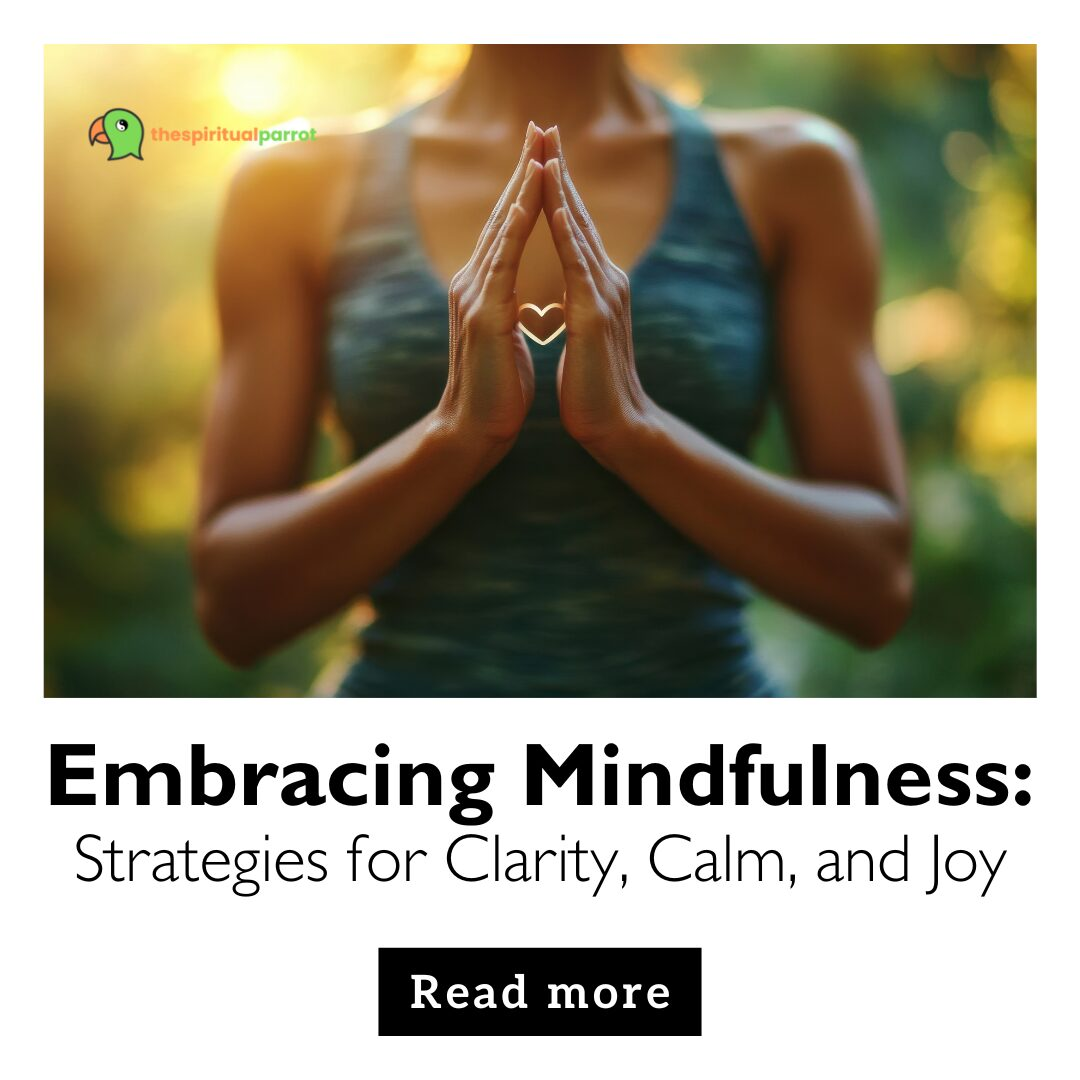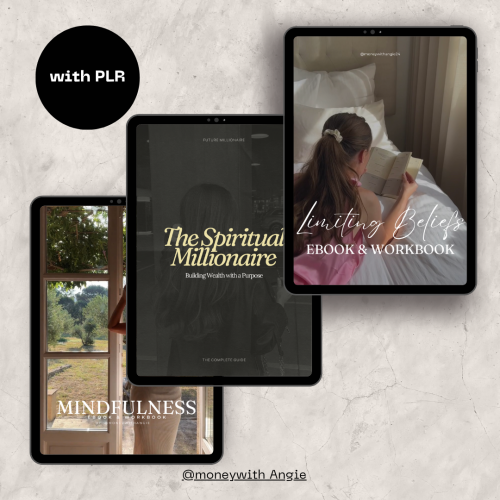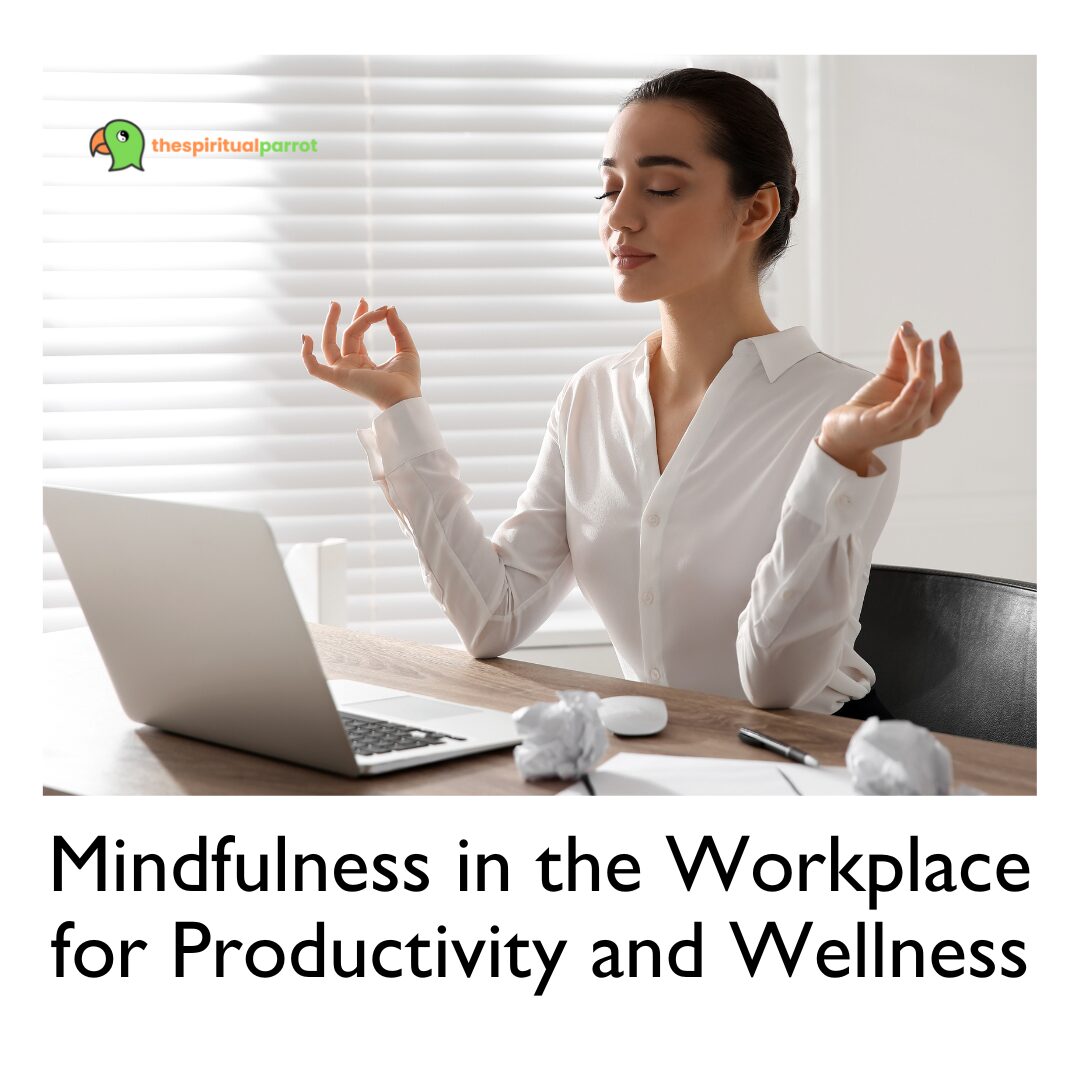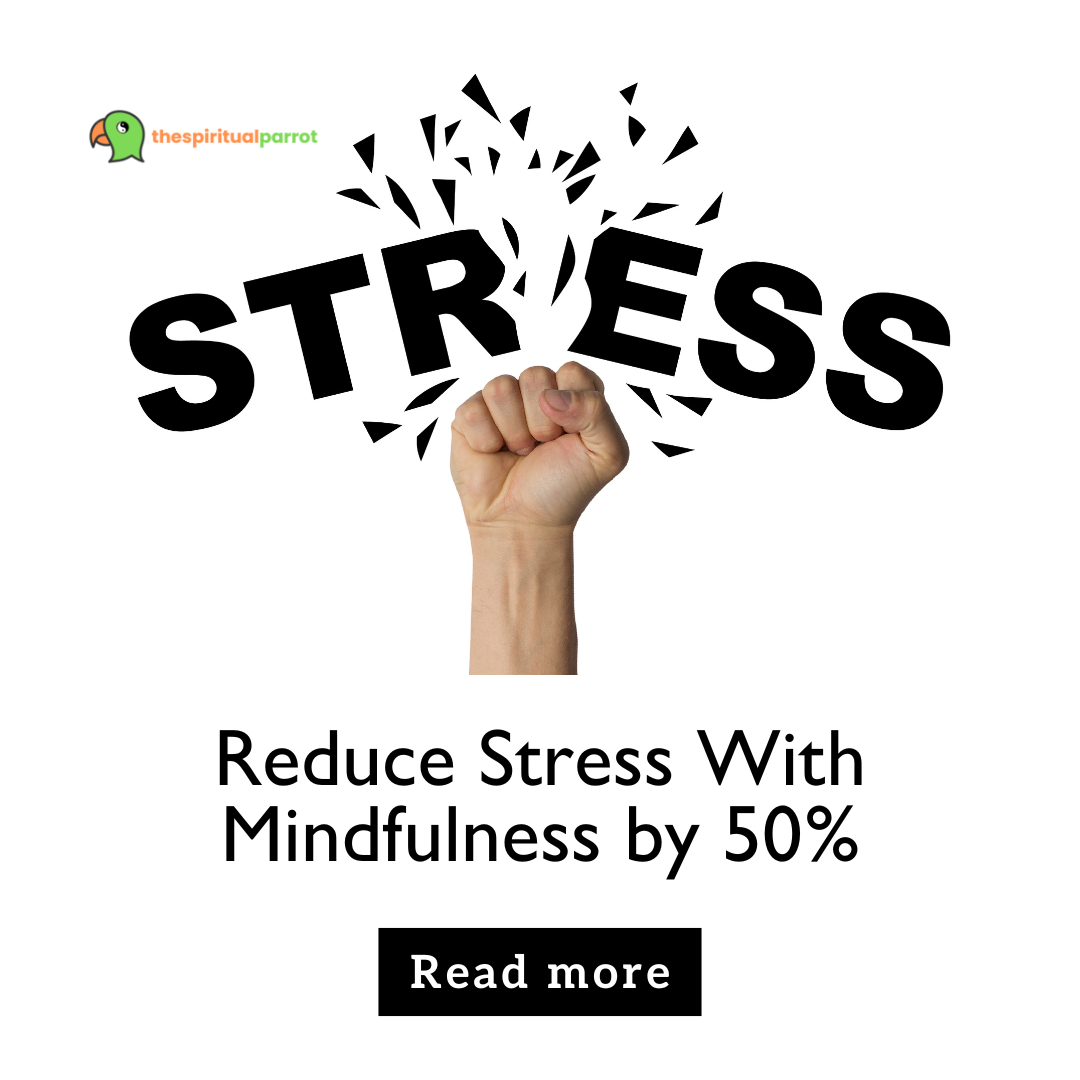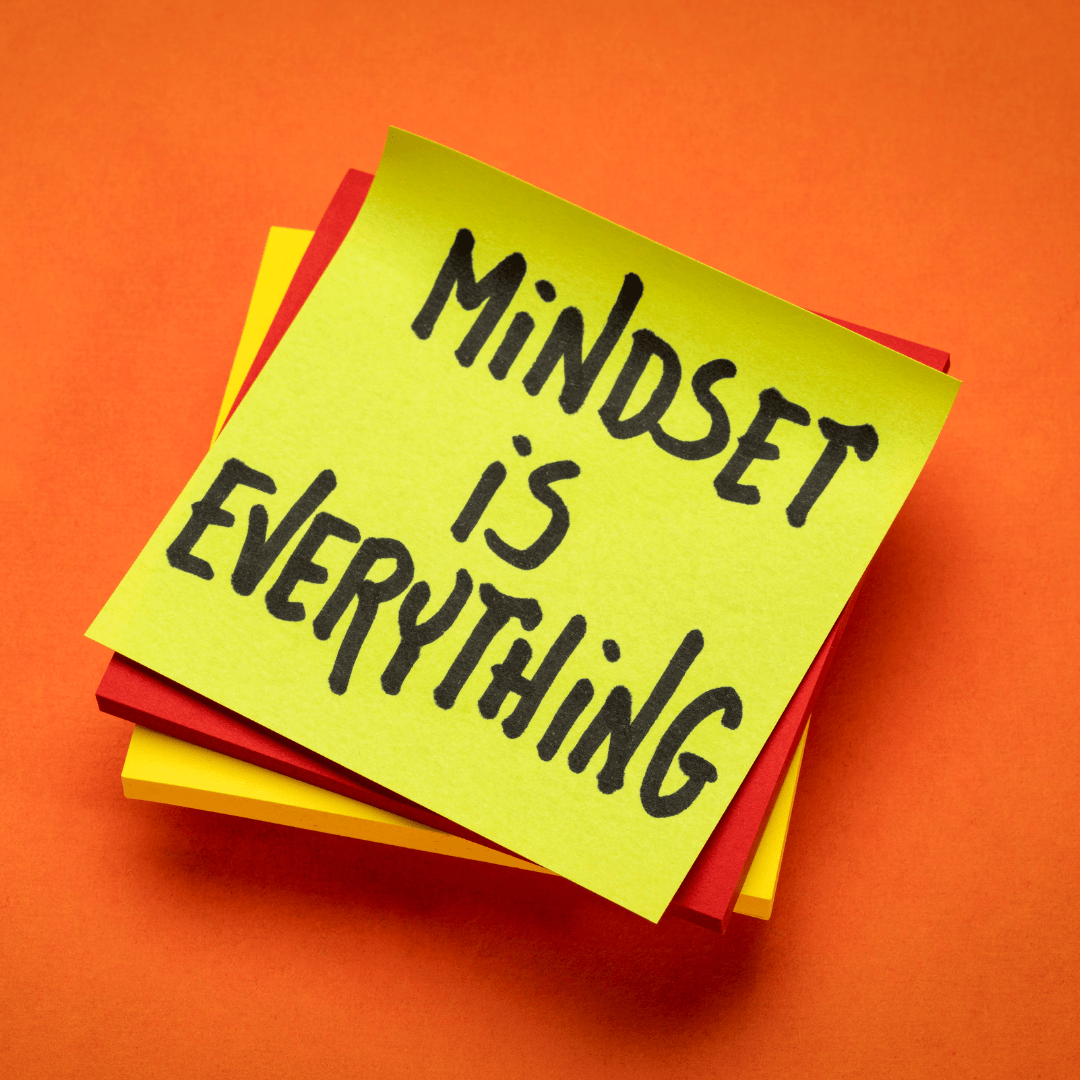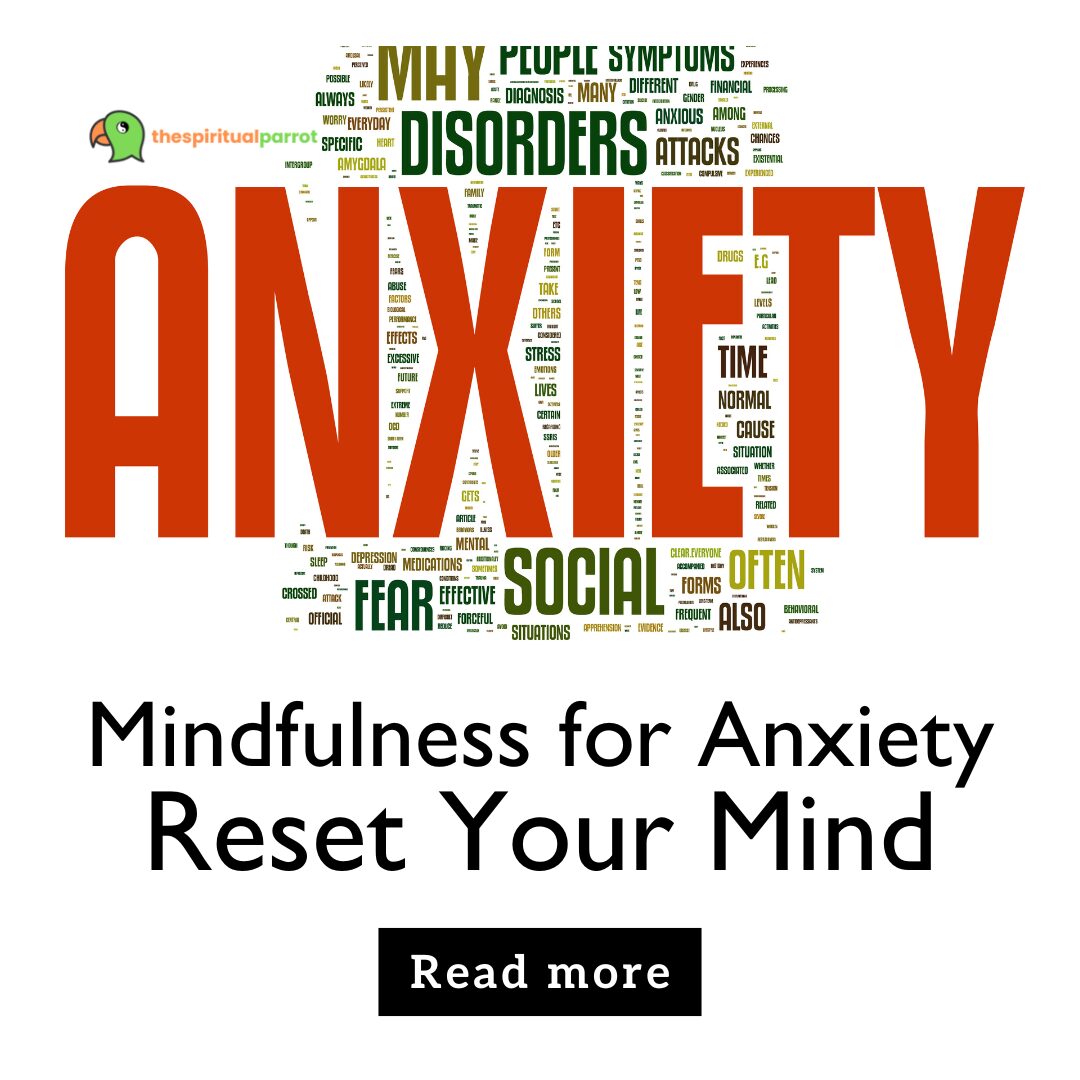In this fast-paced world, so many of us feel we’re running on a constant hamster wheel — pulled in a dozen directions, with hardly enough time to breathe. Which is precisely why embracing mindfulness matters more than ever. When we develop the ability to slow down and attune to the present moment, we’re cultivating a potent source of peace, resilience, and balance.
Mindfulness is more than just a forward-thinking buzzword; it’s an approach that nourishes the mind, body, and spirit. From reducing stress and improving focus to fostering emotional stability and finding joy in ordinary moments, the benefits of embracing mindfulness are far-reaching. While it may seem difficult to pair mindful living with life’s daily hiccups, the rewards always outweigh the effort.
Why Embracing Mindfulness Matters
Are you constantly busy, distracted, or overthinking? You’re not alone. Most of us wrestle with endless tasks and mental noise. Embracing mindfulness offers a surprisingly simple but life-altering shift: being present without judgment in your thoughts, emotions, and surroundings.
This ancient practice calls us to slow down and reconnect with ourselves. By noticing life one breath at a time, we learn to respond calmly instead of reacting on autopilot. Over time, this leads to clarity, compassion, and a deeper sense of peace.
The Benefits of Embracing Mindfulness
When you create space for mindfulness in everyday life, transformation happens on multiple levels:
- Emotional balance: Observing your feelings without being swept away by them.
- Relaxation: Calming the nervous system and easing the constant fight-or-flight mode.
- Mental clarity: Strengthening focus and improving decision-making.
- Physical health: Supporting better sleep, reducing blood pressure, and boosting vitality.
- Spiritual growth: Cultivating purpose and a greater sense of connection.
Most importantly, embracing mindfulness allows you to savor life more deeply — whether you’re enjoying a meal, listening to a loved one, or simply pausing to breathe with intention.
Purpose of This Guide
This guide is designed to help you move beyond theory and into practice. You’ll discover practical, accessible ways of embracing mindfulness even if your schedule feels too crowded. From handling distractions to navigating stress triggers, these strategies meet you where you are.
By the end, you’ll have simple but powerful tools to bring more peace, clarity, and balance into your daily routine. Consider this your starting point for embracing mindfulness as a lifestyle — one breath, one choice, one moment at a time.
Mindful Healing to Overcome Trauma
What is Mindfulness?
Mindfulness is paying attention to the present: savoring a hot cup of tea, noticing its warmth and taste; getting lost in a book, a song, or a movie; being outside and listening to the wind. It’s not about making your mind stop thinking or striving to manage your emotions. Rather, it’s about observing what’s happening — your thoughts, feelings, and surroundings — with an open mind and curiosity. By embracing mindfulness, you begin to know yourself more intimately and act with awareness instead of reacting automatically.
With consistent practice, mindfulness can decrease stress, boost mental focus, and interrupt unproductive thought habits. It can also build confidence, promote emotional stability, and support overall well-being. Ultimately, embracing mindfulness in daily life means creating space for your feelings and learning to sit with them instead of pushing them away.
The Reason to Do Mindfulness
At its heart, mindfulness is about fully inhabiting the present. When you commit to embracing mindfulness, you strengthen the connection between mind, body, and spirit. This link brings clarity and calm, helping you face life’s challenges with greater ease.
The practice draws us back into the here and now, where we can witness thoughts and emotions without judgment. This shift lowers stress, sharpens focus, and nurtures a more intentional way of living. Unlike quick fixes, embracing mindfulness is a gradual process — one that transforms how we relate to ourselves and the world. Over time, it teaches us to value each moment as it is and to cultivate compassion for both ourselves and others.
Here’s What It Takes to Conquer the Challenge of Mindfulness
Mindfulness is not just a pleasant idea — it’s a practice that takes patience, openness, and persistence. In today’s screen-saturated world of swipes and scrolls, slowing down can feel impossible. And yet, embracing mindfulness is exactly what pulls us out of autopilot and into the present with more awareness.
To truly take on this challenge, you need curiosity, fresh perspectives, and a willingness to grow. By practicing nonresistance — noticing thoughts and emotions without being entangled in them — you make space for peace and clarity. With time, embracing mindfulness in everyday life allows you to savor small joys, connect more deeply with yourself and others, and approach stress with resilience.
At the end of the day, mindfulness isn’t about perfection; it’s about presence. And by embracing mindfulness, you open the door to a richer, more grounded, and more fulfilling life.

Mindfulness Meditation as a Way to Manage Depression
Mindfulness and meditation often travel side by side. While they’re not identical — mindfulness is about staying awake to the present, and meditation leans toward inner quiet — both lead to a calmer state of mind. For anyone living with depression, that calm can make all the difference. In many cases, embracing mindfulness is the first step that helps people begin to regain steadiness.
The Role of Mindfulness in Depression
Mindfulness asks you to be here, now — to notice what’s happening without trying to edit or judge it. For someone with depression, this can be powerful. Instead of getting swept away by spirals of negative thought, embracing mindfulness teaches you to watch those thoughts come and go, like clouds passing across the sky. By doing so, people often find they can interrupt the cycles that keep depression alive.
Adding Meditation for Deeper Relief
Pairing mindfulness with meditation can amplify the benefits. A short mindfulness check-in — noticing the breath, naming what’s present — can prepare the mind for meditation. Then meditation itself can deliver the deeper rest that many with depression desperately need. In this way, embracing mindfulness acts like a doorway that makes meditation more effective.
Why Practice Every Day
Like any skill, mindfulness grows stronger with repetition. It isn’t about a single mindful moment; it’s about weaving presence into daily life. A few minutes of mindful breathing in the morning, noticing your steps on a walk, or paying attention to how you eat can slowly build mental resilience. Over time, embracing mindfulness daily becomes a buffer — something that cushions you against the lowest lows of depression.
Beyond the Cushion
Mindfulness doesn’t have to be locked inside a meditation session. It belongs in ordinary life. Washing dishes, journaling, walking to the bus — these can all be mindful practices when approached with attention and curiosity. For those who feel dulled by depression, these simple acts can transform into pockets of relief and even joy.
Combining Practices for Long-Term Well-Being
When mindfulness and meditation are used together, the effect is greater than either alone. This combined approach strengthens mental flexibility and helps people face difficult thoughts without avoidance. It’s not about pushing negativity away; it’s about meeting it with steadiness.
By embracing mindfulness as part of depression management, people gain more agency over their minds. Step by step, they create a life that feels less weighed down and more connected — not perfect, but real, present, and worth living.
Accepting Challenges for Personal Growth Using Mindfulness
Mindfulness isn’t just a technique. It’s more like an ongoing adventure — and yes, sometimes it’s a real challenge. There’s joy in it, and peace too, but the deeper value of embracing mindfulness is how it shows us both our strengths and our weak spots. That’s where real growth starts. When we can sit in the moment, watching our thoughts and feelings without judgment, we begin to meet ourselves more honestly.
Deepened Self-Awareness and Resilience
Mindfulness is often described as “paying attention to the present moment, without judgment.” It sounds simple, but practiced consistently, it can shift so much — our mental health, our physical well-being, and even our emotional balance. By embracing mindfulness, we notice how we tend to react under stress and how much our thoughts shape our reality. This awareness isn’t just knowledge. It strengthens us. We get better at navigating life’s ups and downs without being thrown completely off course.
Conscious Living and Getting the Most Out of Life
Staying mindful isn’t always easy. Some days it feels like work. But the practice gently nudges us toward living with more attention and balance. Life’s pressures don’t disappear, stress doesn’t vanish — but embracing mindfulness in daily life gives us ways to handle them differently. Checking in with our bodies, paying attention to our moods, noticing little joys — these small things build into a fuller sense of being alive.
Transformation Through Mindful Challenges
The mindful path has plenty of bumps and detours. Each one is a chance to change direction or deepen awareness. As our presence grows, so does patience. Compassion. Kindness. Not just toward ourselves, but also toward the people around us. That’s the quiet transformation that comes from embracing mindfulness — it doesn’t stop with us; it spreads outward.
Strength That Lasts
Choosing mindfulness isn’t about chasing quick calm. It’s about building a kind of steadiness that sticks. Over time, embracing mindfulness creates a rooted presence — a strength that helps us show up for the good days and the hard ones. It’s peace in the moment, yes, but also resilience that carries us through every season of life.
:max_bytes(150000):strip_icc()/mindfulness-meditation-88369-Final-ad7c6c81ec38454c97d383a2dffff0b8.png)
Simple Strategies to Embrace Mindfulness in Daily Life
With the hustle and bustle of modern day life, it can be difficult to find time for peace and mindfulness. Mindfulness is an important practice that helps us be present at the moment, cultivate self-awareness, and reduce stress. Fortunately, embracing mindfulness does not have to take up a lot of our precious time – there are simple strategies that can help us bring mindfulness into our daily lives.
Honor Your Breathing
When your mind is busy and you’re feeling overwhelmed, checking in with your breath can be an instant tool to bring mindfulness to the present moment. Focusing on the development and outflow of each breath brings your focus back to the here and now, thanking yourself for taking a few seconds to be aware of your breath.
Action Check-Ins
Mindfulness can be a practical tool that helps navigate day-to-day life. Take a few moments during everyday tasks such as walking, brushing your teeth, or chopping vegetables to notice how it feels, without judgment or expectation. Tune into sensory experiences like temperature and touch for increased awareness and satisfaction when doing simple activities.
Mobile Meditation Apps
Mobile mediation apps offer customized experiences tailored to individual needs within a few minutes during commutes, lunch breaks, or post-dinner time. This can become part of the daily routine, enabling users to sink into regular practice that further refines focus and concentration levels as desired.
Go For Nature Walks
Enjoying nature stimulates mindfulness while exercising body and mind in embracing the beauty around us. It releases stress from the work-life balance or from stretched timelines to accomplish goals. Being in tune with everything heard, seen, or felt allows reconnection with physical intuition as well as movement for inner peace and harmony relying on natural energy sources outside home or office boundaries.
Mindfulness Techniques
Living in the modern world can be stressful and overwhelming, leaving us feeling frazzled and exhausted. To combat this, many people are turning to mindfulness as a way to combat stress and become more mindful of their thoughts and feelings. Incorporating mindfulness into daily routines is a great way to find balance in our lives, reduce anxiety, and build better relationships.
Mindful breathing
Mindful breathing is a mindfulness technique that helps people stay in the present moment and reduce stress. Focusing on your breath can help you relax and bring a sense of calm. It can also help increase focus when used during the day. Mindful breathing requires you to take slow, deep breaths through your nose and out through your mouth to gain maximum benefit. The process should last around five minutes but can be done for longer or shorter periods according to your needs. In addition to mindful breathing, visualization techniques and other mindfulness approaches, such as guided meditation, can also be combined.
Body scan meditation
Body scan meditation is a mindfulness practice that can help bring greater awareness to your body, relieving stress and encouraging relaxation. The technique involves scanning through different parts of the body and bringing attention to any sensations or discomfort you may be experiencing in that particular part of the body. Doing a body scan can heighten your sense of self-awareness which helps you become more in tune with your physical and emotional needs. Additionally, it has been linked to improved sleep, reduced blood pressure, more balanced hormonal levels, and better concentration and focus.
Mindful walking
Mindful walking is a practice of actively focusing on the experience of walking. During walking, it is important to be aware of your breath and the sensations in your body that come along with each step; like ground contact, arm swing, and air passing through you. Mindful walking also invites one to observe their environment more mindfully; taking in sounds, smells, temperature changes, etc. Through its practice, it has been said to reduce stress levels, bring clarity, and promote overall well-being.
Mindful self-reflection
Mindful self-reflection is an important practice for everyone to learn and incorporate into their lives. It is the ability to pause and take a moment to check in with yourself, have patience with understanding your responses in any given situation, and reflect on any emotions or thoughts that may be present. Mindful self-reflection promotes emotional balance, increased clarity of thought, and improved mental well-being. By taking the time to intentionally observe our thoughts and feelings, we are more capable of understanding what drives us instead of letting our reactions rule us.
Journaling
Journaling can serve many different functions for individuals. It can be used as a form of personal therapy to process one’s thoughts, feelings, and experiences. It can also function as a creative outlet where people are free to explore their creativity with writing and drawing. Journaling can serve as a way of deepening insights about oneself and the world around them. Additionally, it can help build better coping mechanisms when faced with difficult situations or stressful times. Regardless of how it’s used, journaling is an effective tool for self-reflection and understanding.
Gratitude practices
Gratitude practices such as journaling, daily reminders to be grateful, and even meditating on what we are grateful for can be incredibly beneficial in elevating moments of joy and decreasing levels of stress. We know that when we express gratitude and allow ourselves to give it back to ourselves or others, our overall emotional state is heightened. By taking a few moments each day to recognize how much we have to be grateful for, we can help create a more positive attitude, which will have both immediate and long-term effects.
Setting personal intentions
Setting personal intentions is an important part of living an intentional life. Aligning our intentions with our values and goals helps us stay focused and make every day count. We can cultivate awareness around what we want to take advantage of—as well as what we should avoid—and aim for the best possible outcomes. Taking the time to set intentions can help us stay on track with our goals, steer clear of distractions, and live a more meaningful existence.
Mindful interactions with others
Being mindful in our interactions with others is more important now than ever before. In a world where people are increasingly disconnected from each other, it is essential to be conscious of how we communicate and interact with those around us. Whether it’s a colleague at work, a family member, or someone you just met on the street, taking the time to think about how we interact can help build meaningful relationships and foster understanding.
Active listening
Active listening is an important skill set for anyone looking to build stronger relationships and grow their understanding of different issues. It involves actively engaging with another person, having full presence in the conversation, actively taking notes and thoughts, as well as reflective questioning. Active listeners will demonstrate empathetic care, make clarifying statements, and seek to understand not just on a superficial level but also on a deeper emotional one. We can gain a better understanding of people’s feelings and thoughts through active listening and responding in a way that is respectful while reflecting on their ideas.
Compassionate communication
Compassionate communication is a tool for cultivating healthier relationships. It utilizes active listening, open dialogue, and understanding to foster trust and mutual respect. This kind of communication focuses on validating needs and feelings instead of simply trying to get one’s point across. Our ability to understand and appreciate others increases when we value their perspectives. Compassionate communication is an essential skill for creating healthier relationships and living a more fulfilling life.
Mindful relationships
Mindful relationships are those relationships in which both individuals bring their attention and intention to the present moment. These relationships are built upon respect, kindness, understanding, empathy, and compassion. By being mindful of our interactions with each other, we develop a deeper connection and an appreciation for the unique qualities that each person brings to the relationship. Mindful relationships also involve communication that promotes openness, honesty, deep listening, and collaboration in decision-making. These meaningful connections help us to grow personally as well as create growth opportunities together.

Finding Clarity, Calm, and Joy by Embracing Mindfulness
In a world filled with buzzing phones, endless to-do lists, and constant distractions, it’s easy to lose our sense of peace. That’s why embracing mindfulness matters. When we slow down and actually notice what’s going on — our breath, our thoughts, the feel of the moment — clarity begins to return. Mindfulness doesn’t mean pushing thoughts away; it means letting them be there without judgment. That small shift creates space for calm, focus, and even joy. Over time, it can boost concentration, productivity, and our overall sense of well-being.
The Connection Between Mindfulness and Positive Emotions
Mindfulness also reshapes how we relate to others. Think of a conversation where both people are really present — listening, paying attention, not half-distracted by a screen. Those are mindful relationships. They grow from compassion, empathy, and respect. By embracing mindfulness in our interactions, we start appreciating the unique qualities each person brings. Communication feels more open and honest, decisions feel more collaborative, and the connection itself becomes more meaningful. These kinds of relationships don’t just feel good in the moment; they help both people grow.
How Mindfulness Helps With Stress and Anxiety
Stress and anxiety aren’t going anywhere — but mindfulness changes how we meet them. By paying attention to our emotions without instantly reacting, we create room for acceptance and compassion. That often means less spiraling and fewer intense reactions when challenges pop up. For example, instead of ruminating after a tough meeting, embracing mindfulness might look like taking a pause, breathing, and letting thoughts settle before responding. With practice, this habit clears mental clutter, improves focus, and brings a sense of control back into stressful situations.
The Role of Mindfulness in Overall Well-Being
At its core, mindfulness is about being here on purpose — fully aware of our bodies, our minds, and our emotions as they are. The more we practice, the more clarity and peace we gain. Studies and lived experience both show the benefits: less stress, better concentration, greater self-confidence, and stronger emotional balance. But beyond the research, the real gift of embracing mindfulness is practical: better decisions, deeper awareness, and the ability to move through daily life with more steadiness.
Conclusion
In conclusion, mindfulness is a valuable tool that can help us live better and more meaningful lives. It enables us to face difficult emotions, clarify our thoughts, and cultivate calm and joy. Learning to practice mindfulness requires patience, self-compassion, and dedication. However, with regular practice and the strategies outlined in this article, you can soon begin to experience the positive effects of mindfulness in your life. Mindfulness is an invaluable skill for any individual looking for more clarity and peace in their life.
Summary of the benefits of embracing mindfulness
Mindfulness is an important practice for emotional health, cognitive functioning, and physical well-being. Mindful individuals can recognize their thoughts and feelings so that they can better manage them, reducing stress and anxiety levels while refreshing the mind with a new level of clarity. Embracing mindfulness also results in improved focus as we learn to recognize what distracts us and consciously create intentional pathways of awareness and understanding. With these benefits, more people are beginning to understand why it’s so essential to incorporate mindful practices into daily life.
Encouragement to incorporate mindfulness into daily life
Incorporating mindfulness into daily life practices can have long-term effects on overall well-being. Scientific studies have shown that meditation has long-term effects on reducing stress levels and anxiety. Activities such as yoga, tai chi, breathing exercises, and guided visualizations can help you practice mindfulness. Taking even just a few minutes each day to focus intently on our current thoughts and feelings without judgment helps create an awareness that can remain with us throughout the day, enriching our interactions with others and enabling more mindful decisions in our lives.
Importance of mindfulness in achieving clarity, calm, and joy
The practice of embracing mindfulness has the potential to be incredibly powerful. Its many benefits include helping people to reduce stress, increase focus, and cultivate a joyful attitude in their lives. Being mindful helps us to make wise decisions in our daily lives and promotes compassion, understanding, and caring for ourselves and others. By creating a mindfulness practice for ourselves, we will enjoy greater clarity, calmness, and joy in life. With these enhanced states of mind, taking meaningful action toward achieving our goals will be easier.
